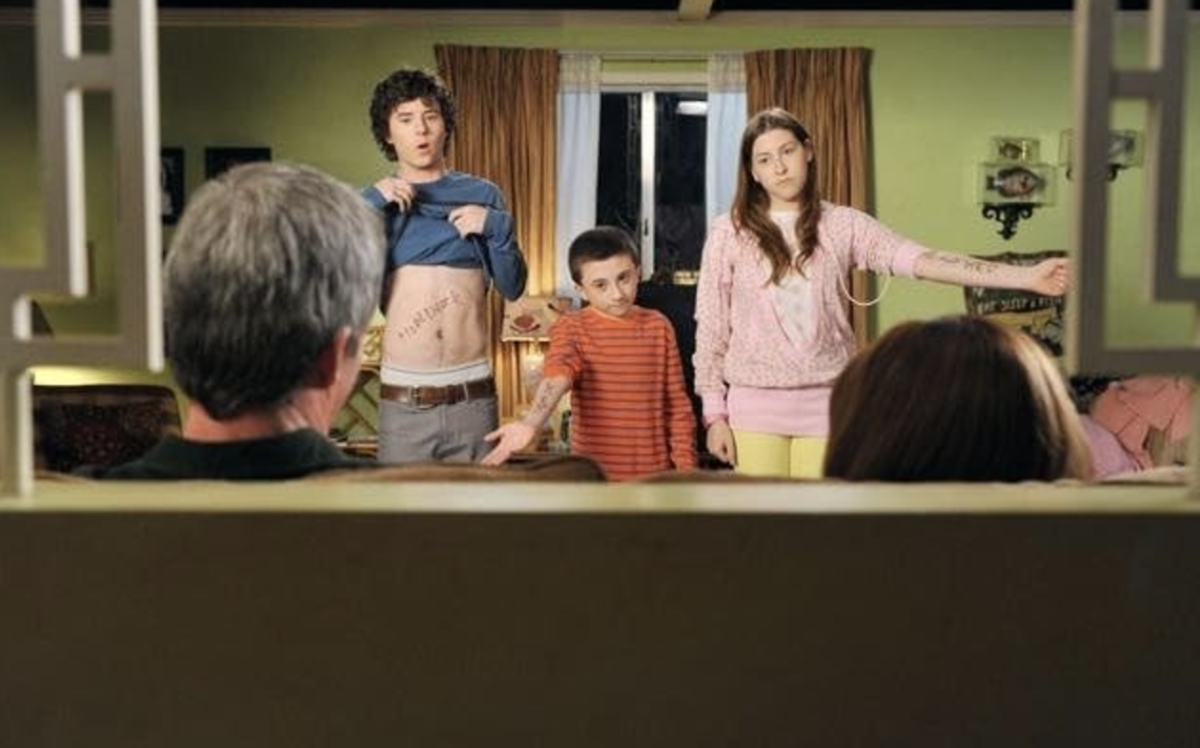
Editor’s Note: The following article contains spoilers for the first season of “Better Call Saul.”
“Breaking Bad” creator Vince Gilligan and producer Peter Gould returned to create and run its spin off series, “Better Call Saul” on AMC. They are a huge part of why season one of “Saul” is as good, if not better, than “Bad” was in its first season. “Saul” is imbued with its own tone, characters and qualities, while still allowing it to share a televisual universe with “Bad.”
“Saul” takes place prior to the events of “Breaking Bad.” Small-time Albuquerque lawyer Jimmy McGill (Bob Odenkirk), aka Saul Goodman, specializes in elder law and lives in the shadow of his brother, Chuck (Michael McKean). Chuck is a founding member and name partner in the uber-successful law firm Hamlin, Hamlin and McGill (HHM). Jimmy tries, over and over again, to join HHM, all the while maintaining a flirtatious relationship/deep friendship with an HHM lawyer, Kim Wexler (Rhea Seehorn). Jimmy spends a lot of time caring for Chuck, who due to a strange medical condition, is confined to his house, convinced that he cannot come in contact with electricity.
Throughout the season, flashbacks reveal how Jimmy became a lawyer in the first place. Years ago, Jimmy left a life of petty crime behind him to work in HHM’s mailroom. As he worked that menial job, he went back to school, took and passed the bar and became a lawyer in his own right. Jimmy wanted to make his brother proud and wanted to prove that he could make something of himself, only to be disappointed when Chuck’s reaction was less positive than he would have hoped.
The most powerful moment of season one comes at the end of the season’s penultimate episode, when Jimmy discovers Chuck was behind HHM’s continuous refusal to hire him. He confronts Chuck, and Chuck’s impulsively hateful response is heart-breaking. McKean plays the scene with a perfect amount of hostility and resentment.
At this point in the series, I had developed a strong connection to Jimmy. I wanted him to succeed and to earn his brother’s pride, and this confrontation makes it clear that that will never happen. It’s a crushing scene.
The power of that scene speaks to just how terrifically the writers have developed the character of Jimmy. The season’s flashback structure gives us just enough of a peek at his past life as a petty con man, when he was once known as “Slippin’ Jimmy”, without overdoing it and spending too much time in the past. Instead, most of the season is spent watching Jimmy attempt to achieve success in his field, to hook new clients and to make some money. One of the season’s, and presumably the series’, larger themes is good versus evil, considering whether Jimmy is a “good guy” or a “bad guy.” For the majority of the season, Jimmy listens to his conscience and, for the most part, does the “right thing” when confronted with ethical dilemmas. At the very end of the season, however, he seems to come to the conclusion that doing the right thing is no longer going to be his go-to. This is an intriguing setup for season two, when he will presumably be experimenting with this new mindset, leaning into the not-so-ethical aspects of his personality that we know so well from watching him for all those years on “Breaking Bad.”
Bob Odenkirk is an absolute pleasure to watch. He nails it as Jimmy balances his charming, funny and charismatic personality with his desperation and motivation to be financially successful. Odenkirk comes from an esteemed sketch-comedy background, and his comedy experience lends itself nicely to this show and this character. Jimmy is quick-witted, smart and funny, and his humor is inspired, in large part, by Odenkirk’s established comedic persona. The bottom line is that Odenkirk is a gigantic part of why this show is successful. Before “Saul” premiered, there were many naysayers online who didn’t believe in Odenkirk’s ability to carry a show. They could not have been more wrong.
The other established “Breaking Bad” character that returns to “Saul” as a regular is Mike Ehrmantraut (Jonathan Banks). While Banks is great and all, Mike doesn’t hold a candle to Jimmy in terms of being a character that is well-developed, entertaining and interesting enough to carry a series like this. One episode of the season is, unfortunately, entirely devoted to Mike, and the only good scene in that episode is the one scene in which Jimmy appears to help Mike out of a scrape. The rest of the episode is melodramatic nonsense that deviates tonally and thematically from the rest of the show. It’s a waste of an episode, and a full hour spent away from Jimmy in the already short, ten-episode season.
Disregarding that one Mike-centric episode, “Better Call Saul” had a tremendous first season. Gilligan and Gould have done an excellent job expanding Saul Goodman from a one-note sleaze ball to the wonderfully three-dimensional character that Jimmy McGill is. I adore this show and will re-watch the season as soon as it pops up on Netflix.
Eli Fine can be reached at [email protected] and followed on Twitter @ElazarFine.


















